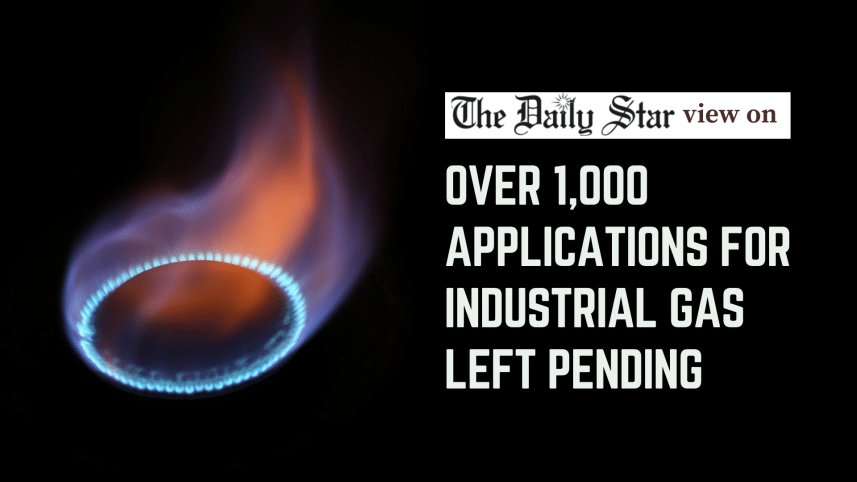Gas crisis deserves priority attention

The news of the government's failure to provide gas connections to over 1,000 industrial units and factories—despite more than 400 applicants having completed all formalities, including the payment of required fees—is indeed concerning. Among them is a factory established by Lantabur Group at the cost of Tk 700 crore. The company received its demand note for the connection as early as November 2022. Once operational, the facility was expected to employ around 1,500 people. Yet, despite construction being completed six months ago, it remains non-operational due to the lack of gas supply. In the meantime, the company has already begun repaying bank loans despite not having generated any revenue from it.
Unfortunately, this is not an isolated case. The 400 applicants currently awaiting connections include both new and expanded factories, as well as those seeking an increase in gas supply. A further 600 factories have applied for connections but have yet to receive any assurance of approval. This clearly demonstrates the extent to which industrial and economic growth is being held back by the ongoing gas connection crisis.
Industrialists have been sounding the alarm on this issue for years. However, the Awami League government, during its tenure, was heavily reluctant to invest in domestic gas exploration even though expert assessments indicated considerable potential. Instead, it placed excessive reliance on imports. With global gas prices having fluctuated drastically in recent years, this dependency has, unsurprisingly, proven costly. Consequently, industries have suffered and continue to do so.
The Awami League government also burdened the energy sector with massive debt through corruption and poor governance—debt that the interim government is now having to repay. But this has significantly reduced its financial flexibility. Although it has rightly prioritised domestic gas extraction, the benefits of such efforts will take time to materialise. That said, while it may be risky for the government to take on added financial pressure to rapidly boost gas supply, it should seriously consider it simply to stimulate industrial activity and accelerate economic recovery in the short term.
At present, the country supplies around 2,800-2,900 million cubic feet (mmcf) of gas per day, against a demand of 3,800 mmcf. And just over 1,200 mmcf is allocated to the industrial sector. To provide all promised connections, an additional 100 mmcf will be required. We urge the authorities to explore all viable options for acquiring this additional supply. Furthermore, the entrenched corruption in the energy sector—including credible allegations that some suppliers demand bribes in exchange for gas connections—must be thoroughly investigated and eradicated.



 For all latest news, follow The Daily Star's Google News channel.
For all latest news, follow The Daily Star's Google News channel. 
Comments